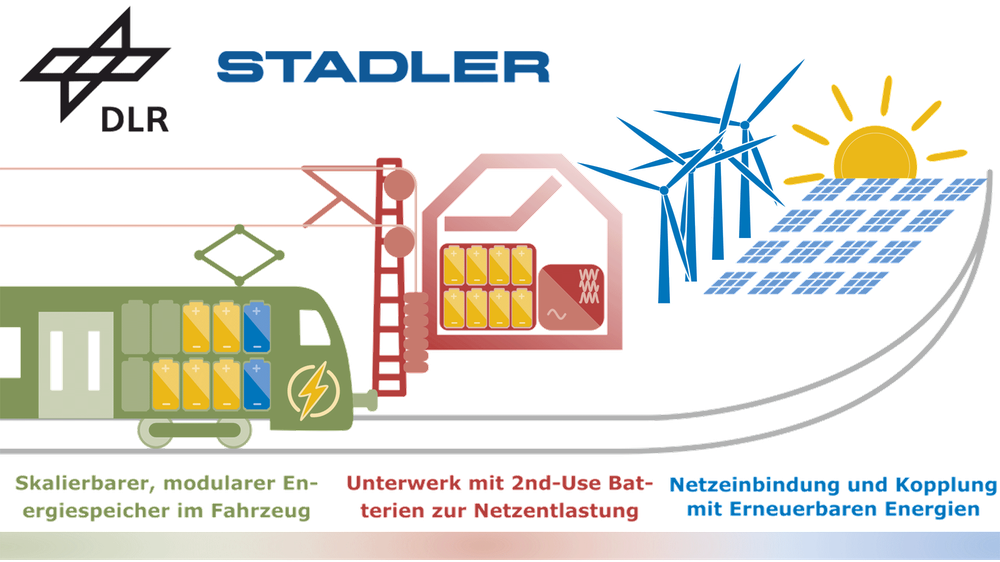This system is intended for use in battery electric rail vehicles (BEMU) on non-electrified or partially electrified railway lines. Particular attention is also paid to the issues of operational suitability, economic efficiency and compatibility with the charging infrastructure.
The MOSENAS project is divided into six work packages, with the DLR Institute of Vehicle Concepts responsible for the content of all work packages.
In the main work package Modular Concept WP 1, the requirements for modular, scalable battery systems resulting from the operational and route operation of electric multiple units with accumulators (ETA) or battery multiple units (BEMU) are being developed. By analysing the German regional rail network, general and route-dependent influencing factors that are necessary for a suitable dimensioning of the modular energy storage system are examined. With the help of derived dimensioning variables, the technical design of the modular system is carried out taking into account packaging boundary conditions. A perspective integration of a fuel cell module is also considered.
The main work package energy demand (WP 2) comprises the investigation and verification of specific influencing factors during operation in the daily and tour cycles, whereby the dynamic behaviour of the modular energy storage system, e.g. taking into account charging windows, recuperation, auxiliary consumers and meteorological influences, is the focus of the work.
Research into the interaction of different battery technologies (cell chemistries or formats) to fulfil the dynamic requirements of the vehicle is the focus of the battery system work package (WP 3). The findings of detailed technology monitoring, a battery measurement campaign and battery ageing modelling serve as direct input for the development of a functional model from which a series system is to be created in the future.
In WP 4, Operation and Safety, early indicators of critical battery conditions, efficient fire protection strategies and storage concepts are evaluated and developed.
In WP 5 (sector coupling), system solutions for optimised recharging infrastructure / vehicle energy storage combinations are identified that enable economical and robust operation with reduced impact on the public power grid. In addition, the integration of renewable energy systems into recharging infrastructures will be analysed systemically.
Finally, in the life cycle assessment work package (WP 6), a life cycle assessment (LCA) of battery systems is carried out at different aggregation levels.
Project goals
- Design and development of a scalable energy storage system with a standardised form factor
- Development of a route simulation tool for more reliable determination of the operational capability of battery multiple units for specific route and operating profiles
- Determination of sector coupling potentials and optimised, grid-compatible operating scenarios
- Preparation of a life cycle assessment
Donor
- Bundesministerium für Digitales und Verkehr (BMDV) – Förderrichtlinie Elektromobilität
- Funding code MOSENAS: 03EMF0403B
Project partners
- Stadler Deutschland GmbH
- Deutsches Zentrum für Luft- und Raumfahrt – Institut für Fahrzeugkonzepte
- Deutsches Zentrum für Luft- und Raumfahrt – Institut für vernetzte Energiesysteme
Project duration
- 01/2022 until 10/2024

